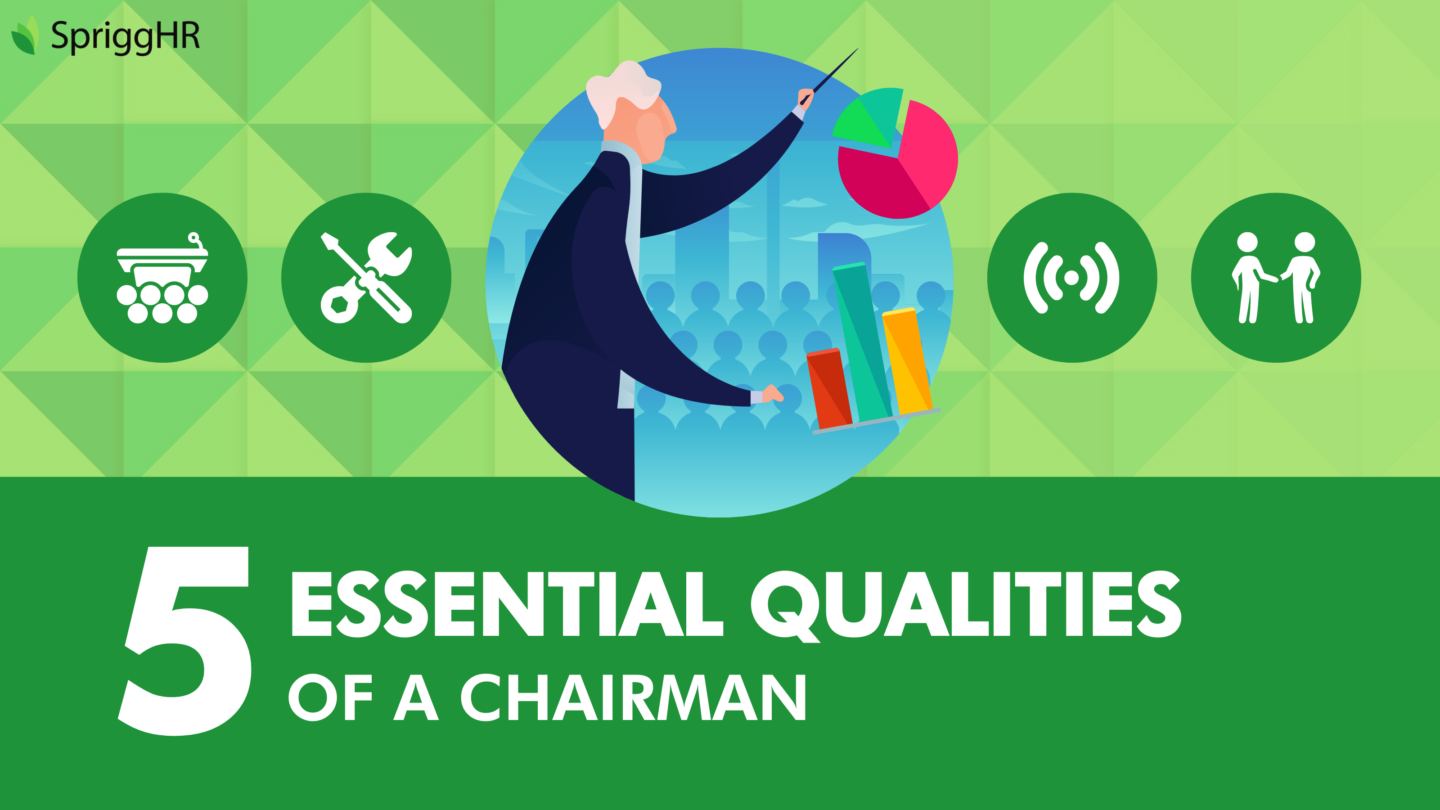
5 Essential Chairperson Responsibilities
The Chairperson of a Board plays a key role in keeping the Board of Directors effective, and a company on track towards success. Because of the integral part they play in keeping these components moving steadily forward, there are essential Chairperson responsibilities that any Chairperson should ensure are executed upon.
The Role of the Chairperson
The primary role of a Chairperson is to ensure that the board of directors is effective in its principle goal, which is to set and implement the company’s direction and strategy. Usually, the Chairperson is appointed by the board itself, and can either be a full-time or part-time role, depending on the board’s demands. Sometimes, usually in smaller companies, the role of the Chairperson is combined with a managing director or chief executive. Joint roles such as those are not recommended for public companies that are listed on the Stock Exchange.
Essential Chairperson Responsibilities
While specific Chairperson responsibilities may hinge upon the unique plans and structure of an organization’s board, there are overarching features of the role that exist for every company:
- While Chairperson, they are expected to act as the organization’s leading representative. This involves the presentation of the company’s aims and policies to potential clients or partners, and to the outside world.
- They are expected to take the chair at both general meetings and board meetings. For board meetings, this involves determining the order of the agenda; ensuring the board receives accurate, timely, and clear information; keeping track of the contributions of individual directors, ensuring they are all equally involved in decision-making. Regardless of the meeting type, the Chairperson should be directing discussions towards consensus views and agreements and should be summing up discussions so that everyone understands what has been agreed upon.
- They are expected to take a leading role in determining the composition and structure of the board. This means regularly reviewing the overall size of the board, the balance between executive and non-executive directors, as well as the balance of age, gender, experience, and personality.
- Finally, they are expected to ensure effective and constructive communication with shareholders and stakeholders.
The Key Qualities of an Effective Chairperson
What ultimately defines whether a Chairperson is strong is their ability to manage an effective board, as well as their management of the board’s relationship with shareholders and stakeholders. Some defining qualities of a good Chairperson include:
1. Ability to Chair Meetings
Meetings for Boards of Directors are infrequent, but the decisions made during those meetings have long-lasting effects on the organization’s future success. Because of that, managing those meetings effectively is critical. A good Chairperson must ensure that all business discussions fall in line with the meeting’s agenda, that every member’s voice is heard and discussed, that clear decisions are reached and unanimously accepted, and that they follow up on those agreements to make sure actions are carried out in line with the board’s decisions.
2. Understanding the Business
Any good Chairperson should have an exceptional understanding of the business, its culture both on a wide and small scale, and thoroughly know the people and processes that make up the organization. They should also understand the wider industry and be able to prepare the company and board for all eventualities. When a Chairperson is experienced, they can quickly identify opportunities and potential risks that face the organization and can engage with their boards early on to discuss potential courses of action and solutions should those situations arise.
3. Ability to Influence Without Dominating
One of the most important Chairperson responsibilities is ensuring that all board members are utilizing their own unique skills for the good of the organization. This means ensuring all members contribute to discussions and the decision-making processes, and allowing each member to express their views, even when they conflict with the Chairperson’s view. Establishing effective communication within the Board and between the Chairperson and the rest of the board’s members is critical. A strong and effective Chairperson is careful not to allow their own ambitions and beliefs dominate the discussion and are always willing to be challenged and enjoy open debate.
4. Having an Assertive Personality
While avoiding dominating discussions is essential, no strong Chairperson should fade into the background, especially when their role entails providing guidance to the rest of the board. Ultimately, the Chairperson is held responsible for the performance of the board. An effective Chairperson gives strength and support to others, and opens the floor to them, while also being resilient and outspoken themselves. This type of balance requires a strong personality. Even the most experienced boards can face challenges, and the Chairperson’s ability to deal with these challenges and guide the board towards recovering from them is critical to the organization.
5. Good Communication
Perhaps one of the most integral Chairperson responsibilities that exists is maintaining effective communication with all shareholders and stakeholders. Through effective communication, the Chairperson gains the confidence of the rest of the board and can provide clarity in the boardroom.
The ability of the Chairperson to effectively communicate company strategy to stakeholders, and resultingly provide stakeholders with confidence in the company’s future direction, helps to keep external pressures at bay. If necessary, an effective Chairperson that has a strong communicative relationship with stakeholders will also be able to stand up to shareholder pressure. Ultimately, they do not lose sight of the company’s main priority of improving the long-term performance of the board and the business.
In Summary
The essential Chairperson responsibilities can be boiled down to the following:
- Providing leadership to the board
- Taking responsibility for the board’s composition and development
- Ensuring proper information for the board
- Planning and conducting board meetings effectively
- Engaging all directors in the board’s work
- Ensuring the board remains focused on its key tasks and responsibilities
- Getting all directors on board in the process of assessing and improving the board’s performance
- Overseeing the induction and development of new directors
When inadequate leadership and governance is so closely linked to underperformance and even failure of boards and companies alike, the role of the Chairperson is critical.





